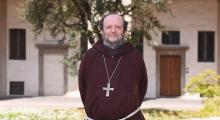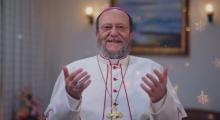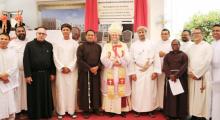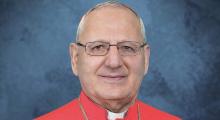Issued by the Catholic Center for Studies and Media - Jordan. Editor-in-chief Fr. Rif'at Bader - موقع أبونا abouna.org
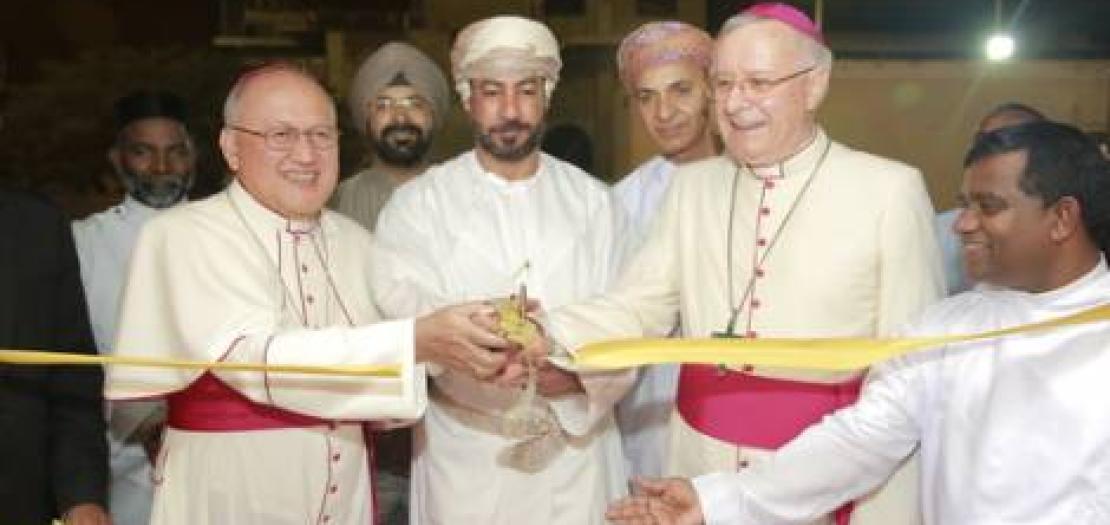
On July 5, the foundation stone of a pastoral center to be built there was laid in Muscat, the capital of Oman. The pastoral center will work as a center of formation, with classes of catechism, and will also work as a residence for priests.
The center is the first in the country, whose Basic Law declares Islam the state religion and sharia (Islamic) law the primary source of national legislation. However, the law also affirms freedom of religion and prohibits discrimination based on religious affiliation. Oman is 45 per cent Sunni, 45 per cent Ibadi, and 5 per cent Shiite.
Yet, until February 2023, the Holy See and Oman did not have diplomatic relations. Contacts accelerated in 2017 after the Sultanate of Oman mediated the release of Salesian Father Tom Uzhunnalil, who had been kidnapped by terrorists in Yemen and held captive for 18 months.
The pastoral center is located on the grounds of the Holy Spirit Parish in the Ghala block, on land donated by Sultan Qaboos Bin Said of Oman in 1977, a few years after the blessing of the sultanate’s first church. The sultan recognized the need for Catholics to have a place of worship in the area, and his decision reflected the region’s spirit of tolerance and religious harmony, according to Mahmoud bin Hamad bin Nasser Alhasani, Oman’s ambassador to the Holy See. The church was inaugurated on Nov. 27, 1987.
The Register has spoken to Alhasani about the meaning of this new pastoral center.
Why did the Sultanate of Oman establish a Catholic pastoral center in Muscat?
The establishment of the first Catholic pastoral center in Oman is part of the country's consistent approach, founded on respect for religious and cultural diversity. It represents, above all, the concrete expression of the sultanate’s authentic values of religious tolerance and human harmony, values that have always been a cornerstone of Oman’s domestic and foreign policy. Omani society enjoys a solid coexistence of different religions and cultures, under an enlightened leadership that views diversity as a source of strength and cultural richness.
Where does this way of living the Muslim faith come from?
It was established by the late Sultan Qaboos bin Said and is today continued and made tangible by the leadership of His Majesty Sultan Haitham bin Tarik. The pastoral center reflects the sultanate’s attention to expatriate, resident and visiting communities, including large Catholic communities, offering them spiritual and human assistance in a climate of mutual respect. It represents a further step in strengthening international relations, highlighting the convergence between the Omani vision and the Holy See’s mission to promote a culture of dialogue and peace.
What does the opening of this pastoral center mean?
The opening of the pastoral center represents a further step in strengthening international relations, highlighting the convergence between the Omani vision and the Holy See’s mission to promote a culture of dialogue and peace. With this initiative, Oman reaffirms that its diplomacy transcends politics, placing humanity and its universal values at the center of its priorities. I confirm that this initiative stems from the profound values of humanity: respect for others, openness to dialogue, balance, clear relationships, and the dignity of the human person. These principles and ideals form the basis of the sultanate’s policy, both domestically and abroad.
What has been the impact of this choice?
This is not a mere symbolic gesture, but rather the concrete manifestation of a long journey of mutual respect and progressive rapprochement between Oman and the Holy See. The Holy See and Oman have recently established diplomatic relations, which are the natural continuation of a human and spiritual bond that has existed for decades. Oman has demonstrated, on several occasions, a clear desire for dialogue with the Catholic Church, both on official occasions and in symbolic events. This has provided solid ground for the launch of a new phase of institutional cooperation.
How important are relations between Oman and the Holy See?
Today, the existing diplomatic framework is giving new impetus to these relations, endowing them with an institutional dimension that enables deeper dialogue and strengthens Oman's image as a bridge of civilizations uniting peoples and religions. This is entirely consistent with the country’s approach to and relationship with others: one based on positive neutrality, dialogue as a means of rapprochement, and the prioritization of common interests over differences, to ensure partnerships built on trust and respect.
Why has Oman only authorized this step now?
In reality, this decision does not constitute a break with the past, but rather the fruit of a long journey of trust and cooperation. The Catholic Church in Oman has been present for decades, freely carrying out its mission and offering its services with official support and in a climate of mutual respect. Therefore, official recognition and the establishment of the pastoral center represent the natural outcome of a long process, crowned, at the appropriate time, by the formal recognition of relations. This evolution reflects the sultanate’s deep-rooted belief that diplomacy is not measured by speed, but by depth and solidity. This is the result of an ongoing dialogue that demonstrates a genuine commitment to peace and coexistence. This approach is in line with the principles of Omani foreign policy, based on openness to others, constructive balance, and respect for the specificities of peoples and cultures. Thus, Oman presents itself as a model of authentic coexistence and mutual understanding at the human and cultural levels.
What is Oman’s purpose on the international stage?
Oman has always presented itself as a beacon of dialogue and peace worldwide, thanks to a sober, farsighted, and deeply rooted diplomacy and policies based on positive neutrality and respect for others. The creation of the pastoral center goes far beyond the simple establishment of a place of worship: it represents a real presence that embodies a firm Omani vision, grounded in mutual respect, cultural openness, and human dignity. A vision that draws inspiration from the authentic values of Omani society, convinced that peace begins within and is reflected outward, that dialogue is the most suitable path to overcoming differences, and that every human being, regardless of cultural affiliation, deserves respect and consideration.


